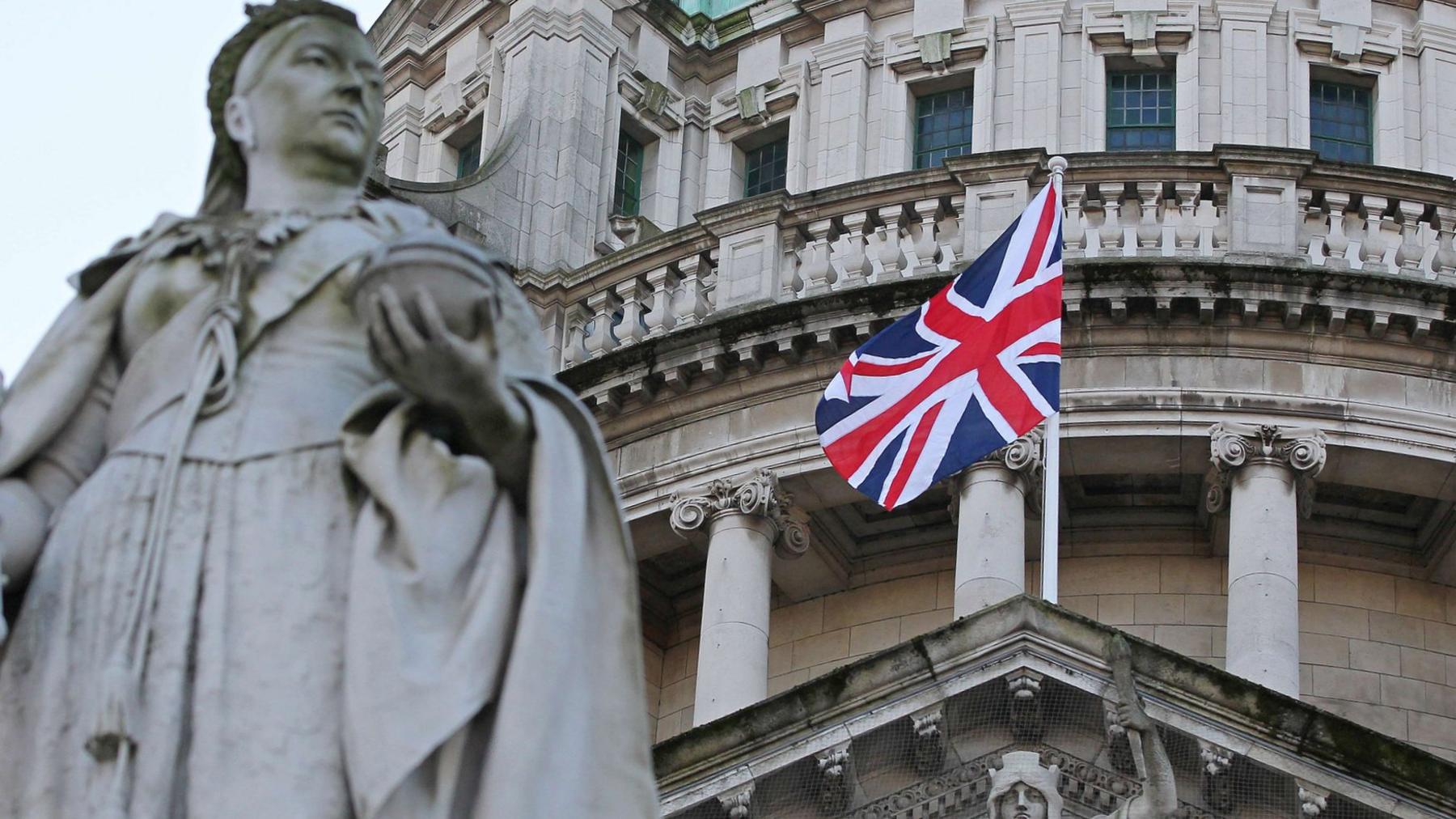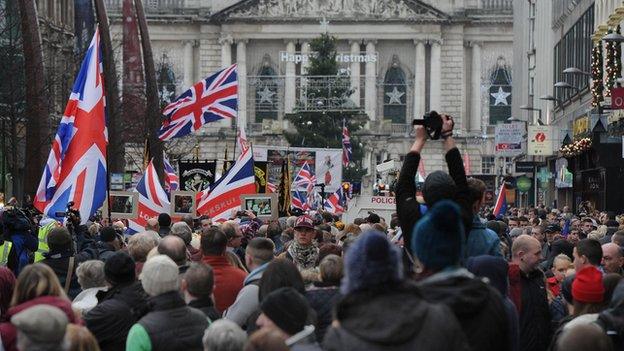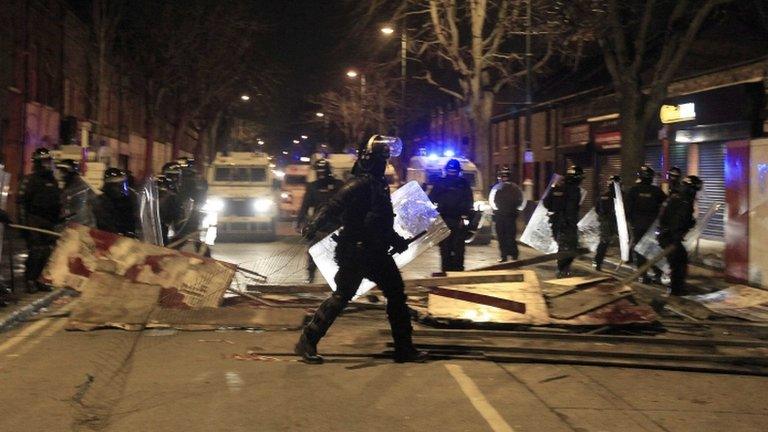Parades Commission seeks to clarify union flag protest parades
- Published
BBC Newsline's Vincent Kearney reports.
The Parades Commission is seeking to clarify the legal options about flag protest marches to Belfast city Hall.
In a statement, it said it had been notified of 14 union flag protest parades, but not about any of the Saturday protests in Belfast.
It said that the situation "raised questions" about implementing the 1998 Public Processions Act.
Protests have been taking place since Belfast City Council voted to restrict the union flag flying at city hall.
One regular aspect is a protest at the council every Saturday when protesters come from east Belfast, demonstrate outside the city hall and then return on foot in a group. These parades have all been illegal because permission was not sought from the Parades Commission.
The police have been in discussions with the commission to establish whether it should make a legal determination about these protests.
The commission was set up to adjudicate on contentious marches in Northern Ireland.
It said that it was working with the PSNI "to assess what options are available" in the event of non-notification of parades.
"The remit of the commission extends to parades and parade-related protests only," it said.
"The commission has no remit to consider protests generally."
Earlier, Northern Ireland's chief constable said he was worried that the authority of the Parades Commission has been undermined by loyalist flag protests.
Matt Baggott told a committee of MPs that he does not want the police to be left making the decisions about whether parades should take place.
He also defended the policing strategy over the protests, which has led to 129 officers being injured.
Mr Baggott said an "over zealous" approach could have inflamed the situation.
He was speaking to the NI Affairs Committee at Westminster.
The PSNI is preparing a report on extra resources needed for the 7,000-strong force. Mr Baggott said more police officers would be needed in the future.
He said that district staff involved in normal policing duties had been "stripped out" to attend loyalist flag protests.
Mr Baggott said: "Had we been over zealous and just literally gone and tried to move people off the roads in a very, very robust way, my sense is that the tension was such and still remains such that we might have ended up with 10,000 on the streets, 20,000 on the street or perhaps even more on the street."
He added: "Tension has been growing over the last six months in relation to other matters and the flags issue gave it a cause."
Police have also been dealing with the severe dissident republican risk, unrest surrounding loyal order parades and planning for major events like the UK City of Culture in Londonderry.
"Looking over the next two to three years and thinking of the last six months, inevitably we will need to have more police officers," said Mr Baggott.
- Published8 January 2013

- Published28 November 2014

- Published23 January 2013
